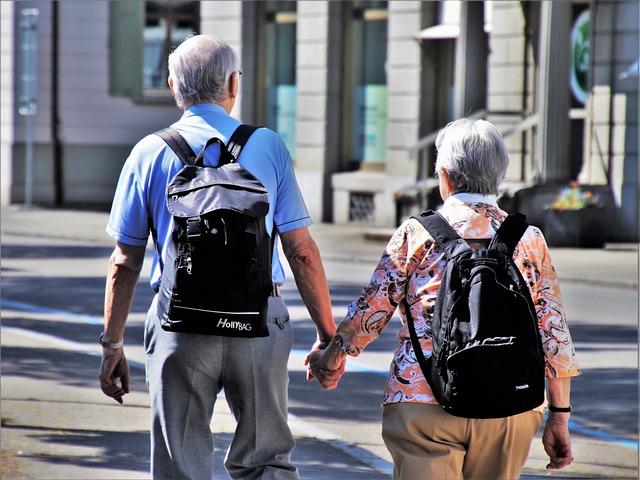In the gentle embrace of twilight years, our seniors deserve to bask in dignity and respect, surrounded by love and security. Yet, beneath this serene surface, there sometimes lurk shadows of neglect and mistreatment. The vulnerability of our elders is a silent call to action for those who cherish compassion and justice. In this article, we journey through the essential steps of recognizing and reporting senior abuse, an endeavor that not only safeguards their well-being but also reaffirms our collective humanity. Together, let us unravel the complexities of this pressing issue with empathy and resolve, ensuring that every voice is heard and every life is cherished.
Recognizing the Silent Cries: Understanding the Signs of Senior Abuse
In a world where our elderly should feel secure and cherished, the reality of abuse often lurks in the shadows, manifesting in subtle signs that can easily go unnoticed. Recognizing these signs is crucial in offering a lifeline to those in need. Physical signs such as unexplained bruises, burns, or scars can be telltale indicators. But the manifestations of abuse aren’t always physical. Emotional and behavioral changes—like withdrawal from social activities, sudden changes in mood, or unusual depression—can also signify distress. It’s essential to trust your instincts; if something feels off, it likely is. Financial abuse can be detected through sudden changes in financial situations, such as unexpected bank withdrawals or alterations to legal documents like wills.
Once you’ve identified the signs, taking the right steps to report and ensure the safety of the senior is paramount. Document everything: keep a detailed record of any incidents, including dates, times, and descriptions of what you observed. Reach out to local authorities or adult protective services to report your concerns. Most importantly, approach the situation with sensitivity and care, prioritizing the senior’s dignity and autonomy. Provide support by offering to accompany them to appointments or helping them connect with support groups or counseling services. Remember, your vigilance and compassion can make a world of difference, offering hope and protection to those who need it most.

Navigating the System: Step-by-Step Guide to Reporting Elder Abuse
Recognizing the signs of elder abuse is the first step, but taking action is crucial to protect the vulnerable. Begin by documenting any evidence or incidents, noting details like dates, times, and specific occurrences. This information is invaluable when making a formal report. Consult with professionals, such as social workers or elder care advocates, to ensure you are following the correct procedures. They can provide guidance on how to proceed and what to expect during the reporting process.
Once you’re ready to report, contact local authorities or elder abuse hotlines. Most regions have dedicated agencies that handle such cases. Key contacts include:
- Adult Protective Services (APS) for direct intervention and investigation.
- Local law enforcement if immediate danger is present.
- National elder abuse helplines for advice and support.
Always prioritize the elder’s safety and ensure they have a safe space during and after the reporting process. Maintaining open communication with the authorities and the elder can help facilitate a smoother resolution and provide peace of mind.

Empowering the Vulnerable: Ensuring Safety and Support for Seniors
Recognizing the signs of abuse in seniors is the first step towards ensuring their safety and well-being. Physical signs such as unexplained bruises, cuts, or broken bones can be alarming indicators. However, emotional abuse might manifest as sudden changes in mood, withdrawal from social activities, or unusual financial transactions. If you suspect abuse, it’s crucial to act promptly. Contact local authorities or organizations dedicated to protecting seniors. In the United States, the National Center on Elder Abuse provides resources and guidance for reporting such cases.
When reporting, ensure you provide as much detail as possible: the senior’s name, age, and address, the nature of the abuse, and any evidence you might have. Remember, your report can remain anonymous. In addition to reporting, consider ways to support the senior emotionally. Offer a listening ear and reassure them that they are not alone. If possible, help them access resources such as counseling services or senior advocacy groups. Your vigilance and compassion can be a lifeline for those who are most vulnerable.

Building a Safer Tomorrow: Community Involvement in Protecting Our Elders
Ensuring the safety of our elders is a collective responsibility that requires vigilance and compassion. If you suspect senior abuse, taking prompt action can make a world of difference. Here’s how you can report and help protect those who have paved the way for us:
- Recognize the Signs: Be aware of indicators such as unexplained injuries, sudden changes in behavior, or financial discrepancies.
- Reach Out to Authorities: Contact local Adult Protective Services (APS) or the police. Provide detailed information to help them take swift action.
- Stay Informed and Educated: Attend community workshops and seminars focused on elder care and protection. Knowledge is power.
- Create a Support Network: Encourage family, friends, and neighbors to maintain regular contact with elders, creating a safety net of care and communication.
By being proactive and attentive, we can build a community that not only acknowledges but actively safeguards the dignity and well-being of our senior citizens.


